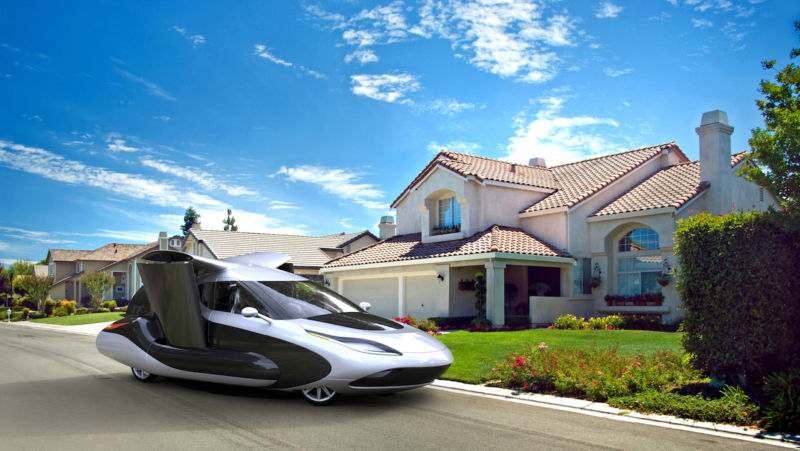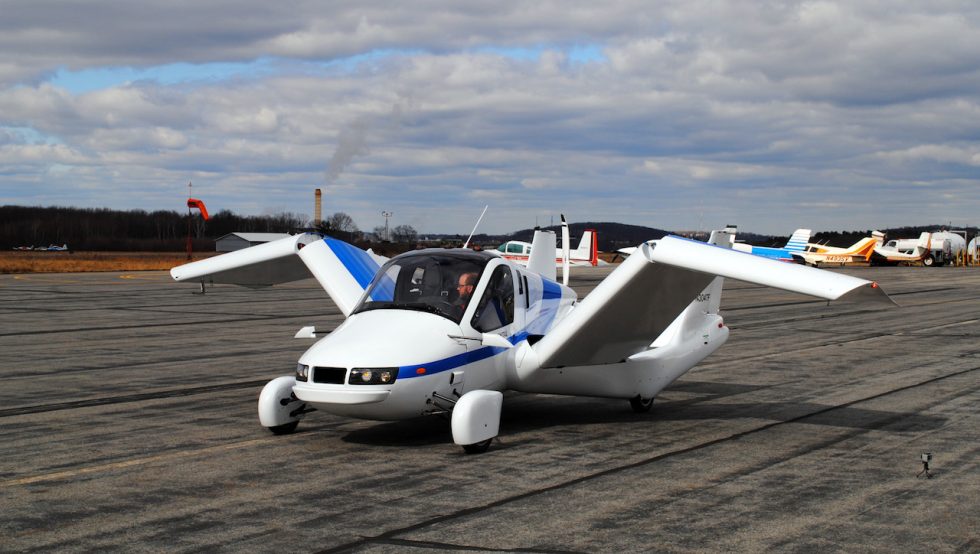
One of the most remarkable transformations in the auto industry has been the flourishing of Volvo Cars under the ownership of Chinese parent company Geely. It could be a poster child for the right way to acquire and manage a brand—one simply needs to look at Volvo's tenure under previous owner Ford, or perhaps the fate of Saab under General Motors, to see things don't always turn out well. Geely has been on a little bit of a purchasing spree of late. In May it bought Lotus, giving hope to fans of the lightweight sports cars. And on Monday, it finalized another sale, this time for something a little more left field: Terrafugia. That's right, it's getting into the flying car business.
Perhaps you're reading this and already cataloguing the many reasons you think a mass-market flying car will never happen. And right now, such skepticism is probably justified. But it's hard to escape the fact that the idea is being taken increasingly seriously. Boeing just bought Aurora Flight Sciences, which is working with Uber to develop flying car services for Dallas and Dubai. (Uber plans to launch that service in 2020.) Airbus just revealed it intends to test its Vahana VTOL machine by the end of this year. Google's Larry Page has not one but two flying car startups. Right now the only thing missing from this corner of the market is Elon Musk's presence, although he's probably a little preoccupied learning how to mass-produce a non-flying car."This is a tremendously exciting sector and we believe that Terrafugia is ideally positioned to change mobility as we currently understand it and herald the development of a new industry in doing so," said Zhejiang Geely Holding Group Founder and Chairman Li Shufu. "Our investment in the company reflects our shared belief in their vision and we are committed to extending our full support to Terrafugia, leveraging the synergies provided by our international operations and track record of innovation, to make the flying car a reality."

Terrafugia intends to get its first flying car to market within the next two years, a winged machine that will require general aviation fields from which to take off and land. Although one would imagine this machine would end up more compromised than either a regular car or regular plane, Terrafugia says that the "convenience and flexibility of being able to change plans at any point provides more freedom to the end user than even extremely high performance planes or cars."
But its plans don't stop there; it also wants to have a vertical take-off and landing (VTOL) flying car on the market by 2023. If the flying car is ever going to make sense to more than a tiny handful of customers, VTOL is a must, for cities have many more heliports than air fields. But even Terrafugia recognizes that there are some missing pieces of the technology puzzle that need to be in place before a flying car makes sense for the masses. Terrafugia's proposal for that is the TF-X, a tilt-rotor design that wouldn't look out of place on the set of Blade Runner
It sounds far-fetched, but then so did the idea of a 600-horsepower electric Volvo sports car, and thanks to Geely we're getting those quite soon...
reader comments
107